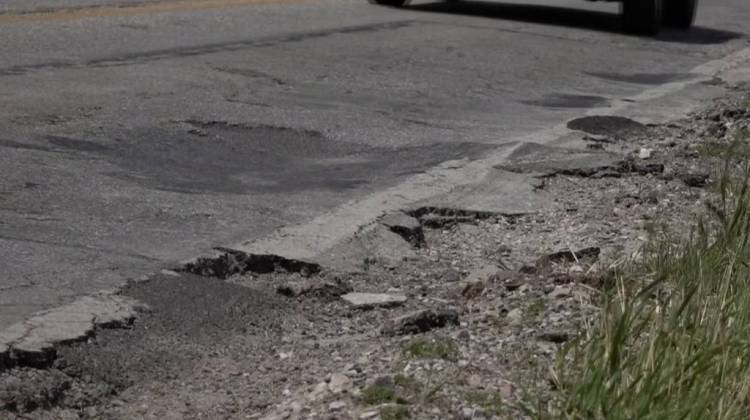A package of bills proposed by Republican senators in efforts to curb crime in Marion County were met with some opposition during a committee hearing.
The bills were unveiled last month, and the Senate Corrections and Criminal Law Committee heard testimony Tuesday. More than 20 people signed up to speak at the hearing, including members of law enforcement and the community. A significant amount of the testimony centered around two bills – Senate Bill 6 and Senate Bill 8 – that would make changes to the bail system.
The legislation comes after Indianapolis saw another record-breaking year for homicides, with 271 people killed in 2021.
Senate Bill 6 aims to tighten bail rules for those charged with violent crimes. If passed, defendants charged with violent crimes would not be able to solicit help from bail bond companies unless their bail was higher than the minimum bail amount. If their bail is at or under that amount, they would be responsible for paying 100% of the bail themselves and may only seek financial help from a close relative.
Senate Bill 8 would create more regulations for nonprofit bail organizations, like the Bail Project, which aims to help low-income individuals pay bail. The Bail Project came under scrutiny after individuals whose bonds were paid by the organization went on to commit further crimes.
The bill would prevent nonprofit bail organizations from paying bail for those facing felony charges. It would also limit the amount of bonds the organizations can pay for misdemeanor charges, and cap those payments at $2,000.
Sen. Aaron Freeman (R-Indianapolis), the bill’s author, said the legislation does not just target the Bail Project, but nonprofit bail organizations as a whole.
Nikki Sterling’s 24-year-old son Dylan McGinnis was allegedly killed in October by a man who was out on bail after receiving help from the Bail Project. Sterling said she is in support of the bill and wants nonprofit bail organizations to be held accountable.
“Sadly, it’s the very communities they claim to be advocating for that are now in harm's way by having these dangerous individuals back put on the street,” she said.
Several people testified at the hearing that both the bills are inequitable, and unfairly punish the poor who cannot pay their bail.
Monica Smith, of the Vera Institute of Justice, said the bills do not reflect data driven or evidence-based community priorities for violence reduction.
“The bail will reinforce that there are two systems of justice, one for the rich and one for the poor,” Smith said.
Senate Bill 6's author, Sen. Michael Young (R-Indianapolis), said he does not believe the bills are inequitable, adding that he thinks wealthy individuals aren’t committing violent crimes.
Additionally, multiple members of Indianapolis’ justice system testified that the bills override the discretion of judges and lawyers.
“This does create an issue with separation of powers or infringement on the judiciary,” said Michael Moore, assistant executive director of the Indiana Public Defenders Council. “This crosses over into the function of what judges do, who are there, closer to the facts, and make these determinations.”
Jeff Clayton, executive director of the American Bail Coalition, testified that instead of looking just at the defendant’s charges to determine what their bail should be, the system should take other factors into consideration to determine if the defendant is at risk for reoffending or not appearing in court.
The bills received support from members of law enforcement, including the Indianapolis Fraternal Order of Police President Rick Snyder, who said that the current homicide numbers are disturbing and change needs to be made.
The senators also heard testimony on three other bills, which would create pilot programs in Indianapolis to address crime and establish stricter protocols for those on electronic monitoring.
The committee is expected to make amendments to the bills and vote on them next week.
Contact WFYI criminal justice reporter Katrina Pross at kpross@wfyi.org. Follow on Twitter: @katrina_pross.
Pross is a Corps Member of Report for America, an initiative of The GroundTruth Project.
 DONATE
DONATE









 Support WFYI. We can't do it without you.
Support WFYI. We can't do it without you.